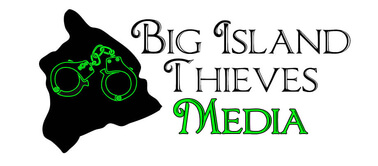HB1016 allows the Department of Land and Natural Resource (DLNR) to issue a single CMVL which would satisfy the commercial license requirement for all persons aboard a vessel, so each individual would no longer have to get a commercial marine license (CML). All vessels are eligible. Longline vessels would be required to report certain crew information to DLNR. It also clarifies that fishing charter services must obtain a CML (if shore-based) or CMVL (if vessel-based). Rules and fees would be established through administrative rules.
HB1017 repeals the statute which prohibits the taking or killing of female spiny lobsters, Kona crabs, and Samoan crabs. In preparation for this measure, an administrative rule was earlier adopted which mirrored the statute. With the statute repealed, DAR can modify crustacean regulations as needed through the administrative rule process. There is no change to regulations yet, but DAR plans to go through the rulemaking process to allow take of female Kona crabs.
HB1018 authorizes DLNR to adopt rules to establish a lay net permit for use or possession. At the present time, lay nets must be registered, but the registration is a one-time event. An annual permit requirement would enable DLNR to withhold or revoke the permit of a net violator, creating an incentive for compliance with rules.
HB1019 establishes an Ocean Stewardship Special Fund and User Fee. Division of Boating and Ocean Recreation (DOBOR) Commercial Use Permit holders would collect a one dollar per head fee from each passenger or customer. That money would be transferred to DAR’s special fund, and used for management measures intended to conserve, restore, and enhance marine resources. Tour operators would be involved in discussions about how the funds are used. Collection of the fee would start January 1, 2024, and the act would sunset five years later. It could be extended if proven to work well.
HB1020 authorizes the Board of Land and Natural Resource (BLNR) to temporarily adopt, amend, and repeal certain natural resource rules by formal action at a public meeting if BLNR finds it necessary to implement effective and adaptive management measures in response to rapidly changing resource conditions. Could be applied to size and bag limits, closed seasons, and gear restrictions when needed in extraordinary situations. The act would become effective October 1, 2021.
HB1022 authorizes DOCARE officers to inspect coolers or other containers which could carry regulated aquatic life.
HB1023 establishes a recreational marine fishing license requirement for nonresidents of Hawai‘i. Any nonresident fishing in the ocean would need to have a license, including guests on a boat. Fees would be $20 for a one-day license, $40 for seven days, and $70 for an annual license. Children under 15 and active duty military and their families would be exempt. Revenues would go to the state for use in marine fisheries management.
HB553 prohibit the take of sharks have been around for the past seven years. The last measure to pass the legislature involved only the protection of rays, after sharks were removed. This bill would prohibit the taking of sharks in state waters, and authorizes DLNR to adopt rules to implement the measure. Exemptions would apply for permitted activities (e.g. scientific research), protection of public safety, and self-defense or defense of others. The act would become effective January 1, 2022.
SB772 authorizes the issuance of special license plates with designs relating to forest and ocean conservation. Revenues ($100-200 per plate) will be deposited in special funds for forest stewardship and beach restoration.



